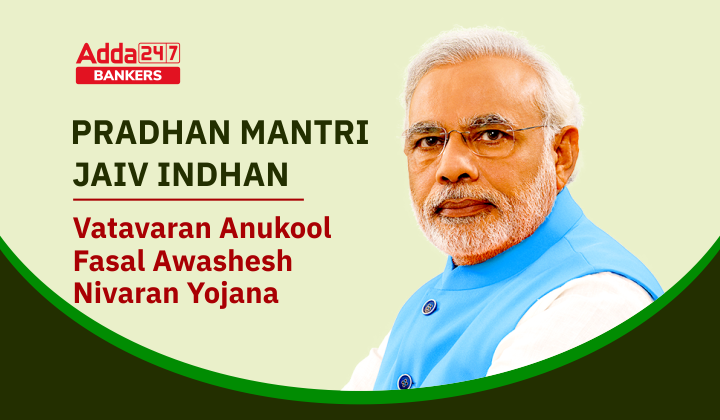Introduction
- In order to encourage setting up of second generation (2G) bio-fuel plants, Cabinet Committee Economic Affairs approved the PM JI-VAN (Jaiv Indhan- Vatavaran Anukool fasal awashesh Nivaran) on February 28, 2019 for providing support to integrated bio-ethanol projects, using lignocellulosic biomass and other renewable bio stock.
- It comes under Ministry of Petroleum & Natural Gas
Objectives
- PM JI-VAN envisages setting up of 12 commercial scale 2G bioethanol projects and 10 demonstration scale 2G bioethanol projects based on non-food biomass feedstocks and other renewable feedstocks with a total financial outlay of Rs. 1969.50 crore.
- It will provide support to these 2G bioethanol Projects with a Viability Gap Funding in two phases:
- Phase-I (2018-19 to 2022-23): wherein six commercial projects and five demonstration projects will be supported.
- Phase-II (2020-21 to 2023-24): wherein remaining six commercial projects and five demonstration projects will be supported.
Note: The Scientific Advisory Committee (SAC) of Ministry of Petroleum & Natural Gas is the
Nodal body for recommending the beneficiaries/ projects under the said scheme.
Benefits of the Scheme:
- Meeting Government of India vision of reducing import dependence by way of substituting fossil fuels with Biofuels.
- Achieving the GHG emissions reduction targets through progressive blending/substitution of fossil fuels.
- Addressing environment concerns caused due to burning of biomass/ crop residues & improving health of citizens.
- Improving farmer income by providing them remunerative income for their otherwise waste agriculture residues.
- Creating rural & urban employment opportunities in 2G Ethanol projects and Biomass supply chain.
- Contributing to Swachh Bharat Mission by supporting the aggregation of non-food biofuel feedstocks such as waste biomass and urban waste.
- Indigenizing of 2G Biomass to Ethanol technologies.
What is 2g biofuels?
- Second generation (2g) biofuels:
- These are produced from non-food crops or portions of food crops that are not edible and considered as wastes, e.g. stems, husks, wood chips, and fruit skins and peeling.
- Thermochemical reactions or biochemical conversion process is used for producing such fuels.
- Examples include cellulose ethanol, biodiesel.
- Though these fuels do not affect food economy, their production is quite complicated.
- Also, it is reported that these biofuels emit less greenhouse gases when compared to first generation biofuels.
Latest updates
The ‘National Policy on Biofuels’ notified by the Government in 2018 envisaged an indicative target of 20% ethanol blending in petrol by year 2030. However, considering the encouraging performance, due to various interventions made by the Government since 2014, the target of 20% ethanol blending was advanced from 2030 to 2025-26.
Financial assistance of Rs. 150 crore each to the four commercial Second Generation (2G) bio-ethanol projects at Bathinda in Punjab, Panipat in Haryana, Bargarh in Odisha and Numaligarh in Assam and Rs. 15 crore to one demonstration project at Panipat in Haryana has been approved under the Scheme. These commercial projects are in advanced stage of construction and are expected to be commissioned from 2022-23. So far, Rs. 151.50 crore has been released based on the milestones achieved as per the scheme.
At present, there is no project for 2G ethanol in the State of Andhra Pradesh under this Scheme. Apart from financial support through PM JI-VAN Yojana, other steps taken to promote 2G Ethanol Plants include imposition of additional excise duty on non-blended fuels; encouraging studies on various aspects including; identifying areas having the potential of surplus Biofuels feedstocks; policy interventions to mainstream biofuels; separate price for 2G ethanol, etc.



 GA Capsule for SBI Clerk Mains 2025, Dow...
GA Capsule for SBI Clerk Mains 2025, Dow...
 The Hindu Review October 2022: Download ...
The Hindu Review October 2022: Download ...
 IBPS PO Apply Online 2025, Online Applic...
IBPS PO Apply Online 2025, Online Applic...


